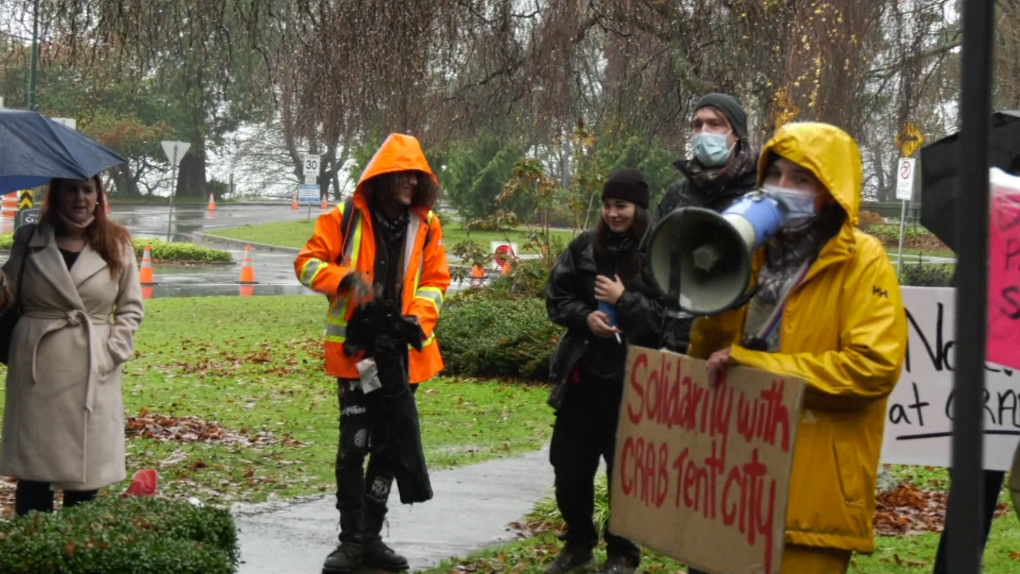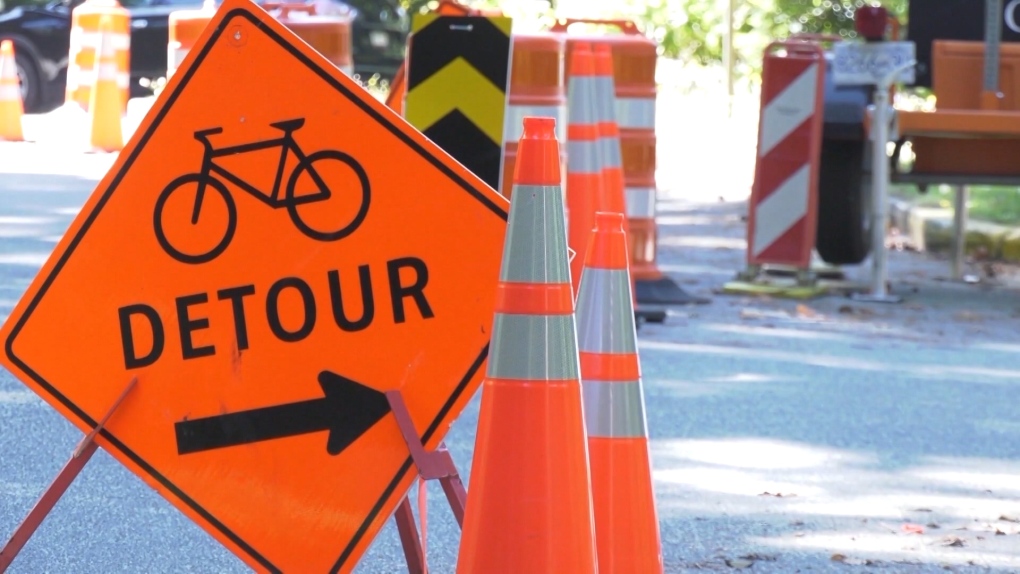Vancouver has the only elected park board in Canada. Is it still necessary?
When voters across B.C. head to the polls on Oct. 15, they’ll be asked to elect a mayor, city councillors and school board trustees. In Vancouver, they’ll also choose seven Park Board commissioners.
Vancouver is the only city in Canada with an elected park board and as such, has its own unique politics.
The Board of Parks and Recreation was initially created in 1888, when the federal government leased a parcel of land to Vancouver - land we now know as Stanley Park. A body, separate from council, was created to take care of it.
Since then, the responsibilities of the park board have grown substantially – it now oversees a range of open spaces and facilities such as parks, beaches, community centres, fitness centres, marinas, ice rinks, public pools, golf courses, playing fields, street trees and special gardens like VanDusen and the Bloedel Conservatory.
Recently, the park board has also taken on bigger responsibilities such as managing homeless populations living in Vancouver’s parks, committing to decolonization and reconciliation (part of that being a colonial audit), tackling climate change and expanding programs for the 2SLBGTQIA+ community.
TENT CITIES
The park board has been at the centre of decision making when it comes to tent encampments in the city’s parks, and two years ago the approach changed. In 2019, the board decided not to seek an injunction to clear out Oppenheimer Park, as concerns grew about crime and violence. Instead, commissioners voted to collaborate with the city to find housing for everyone still camping in the park.
Injunctions were eventually enforced in both Oppenheimer and Strathcona parks during the COVID-19 pandemic, and the park board has since increased resources dedicated to homeless populations. In the last 12 months, the number of park rangers has doubled, with added responsibilities such as needle sweeps and homeless outreach.
The park board has also hired a “first-ever” director of urban relationships, a job that involves leading the board’s “work on responding to the needs of people experiencing homelessness, helping to fulfill the City’s humanitarian responsibilities to those sleeping or sheltering in parks.”
 Protesters gather outside the Vancouver Park Board office on Nov. 25, 2021, over the decision to seek an injunction against CRAB Park campers.
Protesters gather outside the Vancouver Park Board office on Nov. 25, 2021, over the decision to seek an injunction against CRAB Park campers.
STANLEY PARK BIKE LANE AND CLIMATE CHANGE
In the early days of the pandemic Stanley Park was closed to all but essential traffic to ensure the public adhered to physical distancing requirements. Stanley Park Drive was allocated only for cyclists to “create more space on the seawall for pedestrian traffic.”
Shortly after, the bike lane project evolved into a study on how Vancouver can respond to the climate crisis and encourage more people to engage in active transportation by reducing vehicle traffic in the park, despite pushback from two commissioners, some members of the public and businesses inside the park.
During an interview with CTV News in July, commissioner John Irwin said he was inspired by places such as Central Park in New York City, where cars had been removed.
“I think the goal is, in a situation where we’re in a climate crisis and it’s going to take us a long time to get carbon producing cars out of our system, that we need to look seriously about how we get people around,” Irwin said. “The pandemic has been, and seemed like, the pressing emergency of our time, but from my perspective… the bigger crisis is the climate crisis.”
The bike lane is now staying in place until the completion of the Stanley Park Mobility Study, which is assessing the feasibility of reducing vehicle traffic through the park and is expected to be finished next year. The study does not, however, assess any possible reduction in carbon emissions by reducing vehicle traffic.
 A sign marking a temporary bike lane in seen in Stanley Park.
A sign marking a temporary bike lane in seen in Stanley Park.
EVOLVING RESPONSIBILITIES
With the adoption of new goals and responsibilities, questions have been raised about whether the park board is moving too far away from it’s core role. In March, the Vancouver Aquatic Centre had to be temporarily closed after a piece of the building fell off.
Stanley Park was closed to the public for two weeks after dozens of people were attacked by coyotes, swim times were reduced at public pools over the summer due to a lack of staff and in July, commissioners had to pass a motion for all water features to be assessed because a high number had either fallen into a state of disrepair or were non-functional.
Andy Yan, director of the City program at Simon Fraser University, sees the diversification of the park board’s responsibilities as a response to a changing city.
“You can kind of see in one way how the park board has kind of grown with the city,” Yan said. “We see the further complications in how the demand on our parks has changed, as life in the City of Vancouver has become more complicated.”
CTV News political contributor and former Vancouver city councillor George Affleck holds a different view.
“It doesn’t seem to work, it doesn’t seem to function properly,” Affleck said. “One of the challenges that we have in Vancouver with an elected park board is that it’s its own entity and as a result it’s its own bureaucracy and because of that you see bloated administration happening, because they have to deal with things that politicians see as part of their agenda.”
Despite the evolving responsibilities on the board, the role of commissioner is only seen as a part-time commitment, with an annual salary of $18,743 per year. By comparison, Vancouver city councillors are paid $91,879 per year.
DOES VANCOUVER STILL NEED AN ELECTED PARK BOARD?
ABC mayoral candidate Ken Sim had originally vowed to abolish the park board and bring it under the jurisdiction of council. That promise has since changed with the party fielding six park board candidates in the upcoming election.
In an interview with CTV News in May, Sim said “there are a lot of issues at the park board that need to be fixed and they need to be fixed now.”
According to Yan, having a separate elected park board to care for Vancouver's open spaces benefits the city by increasing oversight of decision making.
“This level of democracy does offer a level of transparency,” Yan said. “It’s really easy to say that they’re doing a terrible job (but) they’re really working with the resources that they do have and I think some of these challenges are profound.”
Affleck believes it creates issues on Election Day by asking for voters to pick a long list of candidates.
“It’s intimidating… it’s probably got over 100 names on it - then you have to flip it over to see the three Capital Plan questions,” Affleck said. “It’s daunting and it’s big.”
CTVNews.ca Top Stories

Joe Biden pardons his son Hunter Biden on gun, tax charges, despite previous promises he wouldn't
U.S. President Joe Biden announced Sunday that he pardoned his son Hunter Biden on gun, tax charges, despite previous promises that he would not do so.
Canada Post presents union with 'framework' to reach deal as strike continues
Canada Post says it has presented the union representing some 55,000 striking postal workers with a framework to reach negotiated agreements.
'Devastating': Missing Surrey, B.C. teen found dead, family says
The family of a missing 18-year-old, who was last seen in Surrey over a month ago, says there has been a tragic end to the search.
The best tips to prepare your car for the winter
Slippery or snow-covered roads, reduced visibility and bitter cold are all conditions that can make driving difficult and even dangerous during cold weather months. CAA spoke with CTV Morning Live this week on some of the best ways you can winterize your car.
PM Trudeau 'surprised' provinces unanimous on accelerated defence spending: Ford
Ontario Premier Doug Ford says his fellow provincial leaders are united in pushing for Canada to meet its NATO defence spending targets ahead of schedule, and that Prime Minister Justin Trudeau was "surprised" to hear it.
Stellantis CEO Carlos Tavares resigns as carmaker continues to struggle with slumping sales
Stellantis CEO Carlos Tavares is stepping down after nearly four years in the top spot of the automaker, which owns car brands like Jeep and Ram, amid an ongoing struggle with slumping sales.
'Wicked' star Marissa Bode speaks out against 'harmful' ableist comments made about her character
'Wicked' actress Marissa Bode posted a video on TikTok asking for kindness after receiving ableist comments on social media.
Poilievre calls for asylum seeker cap, border plan as U.S. tariff threat looms
Conservative Leader Pierre Poilievre has demanded the federal government present a plan before Parliament to beef up border security as U.S. president-elect Donald Trump threatens to impose stiff tariffs on Canada.
Emergency crews battle large fire at Kitchener, Ont. townhouse complex
Waterloo Regional Police say Kingsway Drive will remain closed as emergency crews continue to battle a large blaze at a townhouse complex.

































